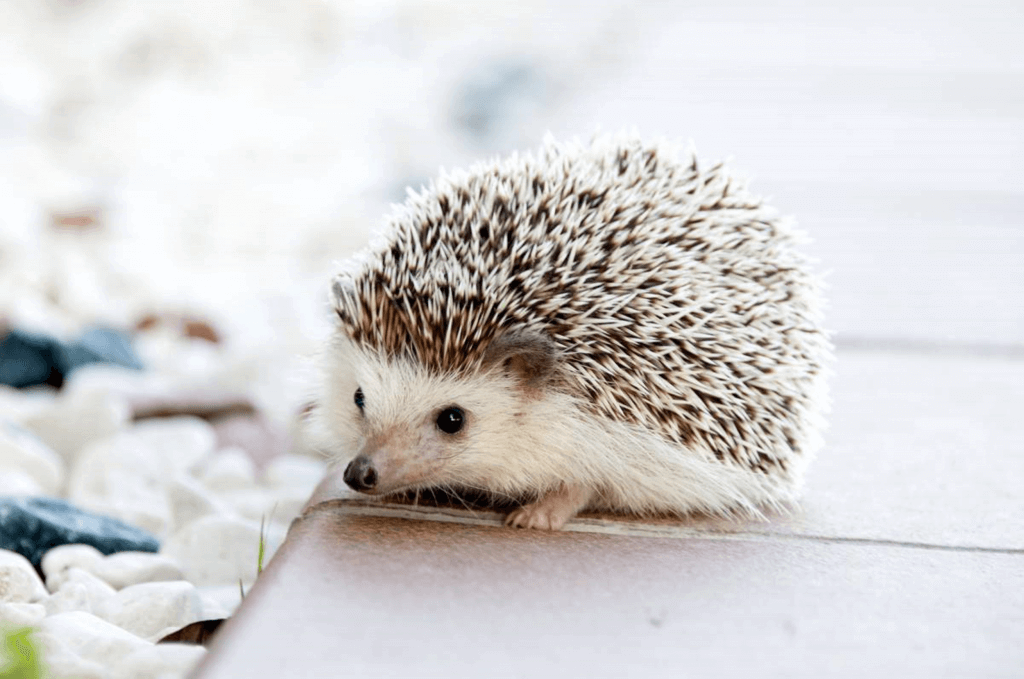Hedgehog Day
Hedgehog Day is observed next on Monday, February 2nd, 2026 (10 days from today).

Hedgehog Day is celebrated on February 2 every year. Around 1450, the word hedgehog was used. It is derived from the Middle English word "hedgehog". There are about 17 species of hedgehog in 5 genera, and they are found in parts of Asia, Europe, New Zealand and Africa. National Hedgehog Day is dedicated to these adorable creatures. Hedgehogs depend mainly on their sense of smell, as they can easily smell food even under an inch of soil, and these hedgehogs can sense danger too.
Outstanding facts about the hedgehog
There are a total of 14 species of porcupines around the world, most of which are concentrated in Europe, Africa and Asia. These nocturnal and solitary creatures are most commonly found in green spaces such as gardens, forests and parks – fences are, of course, a particularly common phobia for wild animals. This breast, combined with their small and pig-like snout, is where they get their Name!
As we all know hedgehogs are covered with spines, but what you may not know is that these spines are actually hollow hairs hardened by keratin. Hedgehog use their many spines (about 5,000 at full maturity!) as a defense mechanism when threatened by rolling into a tight ball so all spines are facing out. What's less well known is that they also use them for cheese and pineapple in cocktail parties (although there hasn't been any photographic evidence of this…!).
Hedgehogs mainly rely on the sense of smell. They can detect food under an inch of soil and can often sense the presence of danger. They are omnivores, best known for snacking on fearsome reptiles like earthworms, slugs, and caterpillars, but they also eat delicacies like mushrooms, berries, small frogs, and bird eggs. They tend to forage at night and can travel 2-3 km long.
A very strange fact about hedgehogs is that they anoint themselves - this seems to be related to an unusual smell or taste that causes them to produce large amounts of frothy saliva which they then glide over their spines with their tongues.
While self-anointing may not be one of their loveliest traits, the fact that hedgehogs are called hoglets certainly is! Hoglet litters are born in late spring/early summer, and the young spend about a month in their parents' nests before starting out into the big world.
History of Hedgehog Day
Hedgehog Day is a Roman tradition. Although the groundhog is native to North America, many different animals have been used in Europe to help predict the coming late winter and spring, including hedgehogs. The ancient Roman tradition passed on to other European folklore, especially in Ireland. If a hedgehog is seen in early February, it is said to be a sign of good weather and promises warmer days, while the absence of hedgehogs means winter is sure to continue in a few weeks.
In hindsight, this may not be a particularly reliable method of weather forecasting, especially since hedgehogs tend to hibernate from November to mid-March! However, they emerge from hibernation periodically during these months to change nesting sites, so any ancient weather observer is most likely to spot hedgehogs simply going to elsewhere to continue hibernation.
In fact, hibernation is a risky business for these animals. Sadly, about two-thirds of hedgehogs will not make it through the first winter, especially if food is scarce. Their body temperature, breathing, and heart rate drop suddenly (to just two beats per minute) and it's important that they stock up on enough food before winter to stay active until spring.
Hedgehog Day is also tied to the US release date for Sonic the Hedgehog 3 in 1994. There have been a number of famous hedgehogs in popular culture, with Sonic perhaps the best known - he's certainly is the fastest, and this electric blue character has appeared in a series of Japanese video games as well as his own movie. British children's book author Beatrix Potter created Mrs. Tiggy-Winkle, another famous hedgehog who is exceptionally good at washing. And the hedgehog has been popular throughout history, whether as the subject of fables and poetry, worshiped as a sacred object or believed to have valuable medicinal properties.
How to celebrate Hedgehog Day
Perhaps the best way to celebrate Hedgehog Day is to help protect these thorny yet adorable creatures. In some parts of the world, especially Europe, the number of hedgehogs is sadly declining. This appears to be due to many complex factors such as habitat loss due to urbanization and agriculture, food scarcity due to the use of pesticides and diseases caused by parasites.
If you're lucky enough to have a garden, a hedgehog's primary habitat, why not make the hedgehog safe? Always check for thorny guests before mowing and creating an exit from your pond or water feature. Check the bonfire before lighting it as this is another common hiding place for hedgehogs and be careful with nets as they can get tangled up easily! If you come across a hedgehog in need, keep it warm and feed it cat or dog food with fresh water - this is much better than giving it milk and bread. You can then take it to your local rescue center or, if it's appropriate, release it back into the wild.
And there are many things you can do to go the extra mile and make your garden, even more hedgehog-friendly. Each individual will have a home range of up to 30 hectares, so hedgehog highways are especially important in urban areas - creating through or tunneling gaps under the fence between your garden and your neighbors will make sure the hedgehog can roam far and wide in search of food. Planting a variety of plants will increase the number of insects in your garden, providing a delicious feast for any hedgehog that comes across. And you can even encourage them to settle in your garden, by piling up some logs and leaves for a nest or by building a hedgehog cottage - you'll find plenty of directions. Great guide for these things online!
Hedgehog cakes are fun to bake, especially with kids, and if you're really serious about protecting hedgehogs, you can even sell your cakes to raise money for a hedgehog conservation charity! You can also sign up for a citizen science project to help keep track of the numbers, and some organizations and charities offer the chance to adopt a hedgehog for yourself or a loved one.
However, you celebrate it's sure to be a tough tactical day!
Observed
Hedgehog Day has been observed annually on February 2nd.Dates
Friday, February 2nd, 2024
Sunday, February 2nd, 2025
Monday, February 2nd, 2026
Tuesday, February 2nd, 2027
Wednesday, February 2nd, 2028


